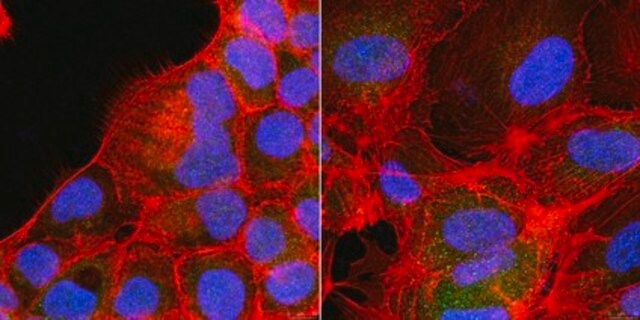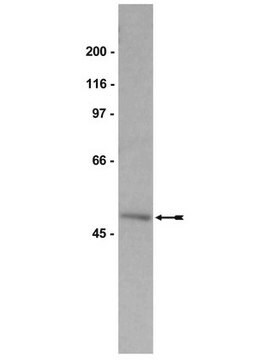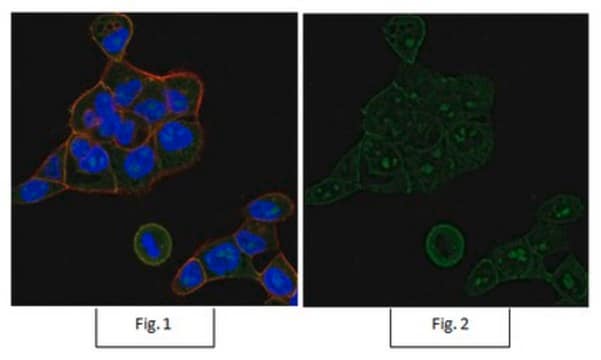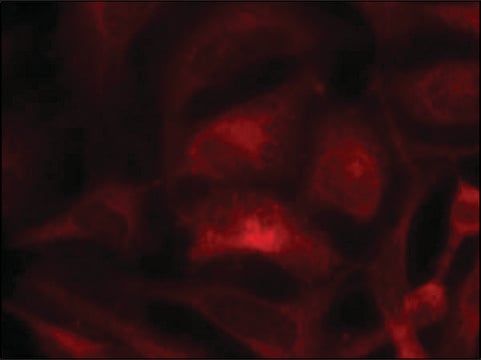05-389
Anti-Rac1 Antibody, clone 23A8
clone 23A8, Upstate®, from mouse
Synonym(s):
Anti-Rac1
About This Item
Recommended Products
biological source
mouse
Quality Level
antibody form
purified immunoglobulin
antibody product type
primary antibodies
clone
23A8, monoclonal
species reactivity
rat, human, mouse
packaging
antibody small pack of 25 μg
manufacturer/tradename
Upstate®
technique(s)
immunohistochemistry: suitable
immunoprecipitation (IP): suitable
western blot: suitable
isotype
IgG2b
NCBI accession no.
UniProt accession no.
shipped in
ambient
target post-translational modification
unmodified
Gene Information
human ... RAC1(5879)
General description
Specificity
Immunogen
Application
Signaling
Cytoskeletal Signaling
G-proteins
Quality
Target description
Physical form
Storage and Stability
Analysis Note
Immunoblot/Immunoprecipitation: Rat brain microsomal protein preparation
Immunohistochemistry: Rat brain sections
Other Notes
Legal Information
Disclaimer
Not finding the right product?
Try our Product Selector Tool.
recommended
Storage Class Code
10 - Combustible liquids
WGK
WGK 1
Certificates of Analysis (COA)
Search for Certificates of Analysis (COA) by entering the products Lot/Batch Number. Lot and Batch Numbers can be found on a product’s label following the words ‘Lot’ or ‘Batch’.
Already Own This Product?
Find documentation for the products that you have recently purchased in the Document Library.
Our team of scientists has experience in all areas of research including Life Science, Material Science, Chemical Synthesis, Chromatography, Analytical and many others.
Contact Technical Service








